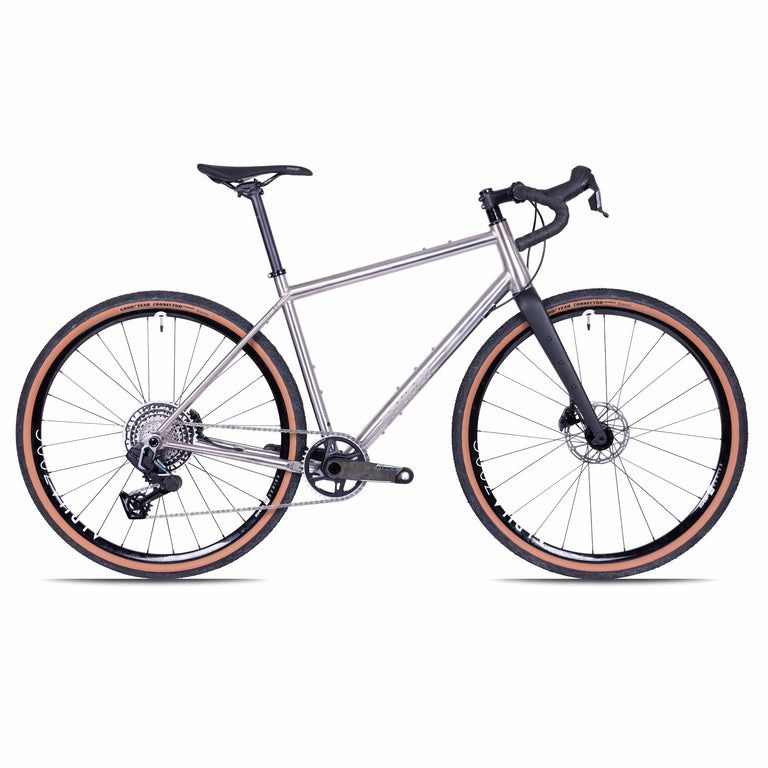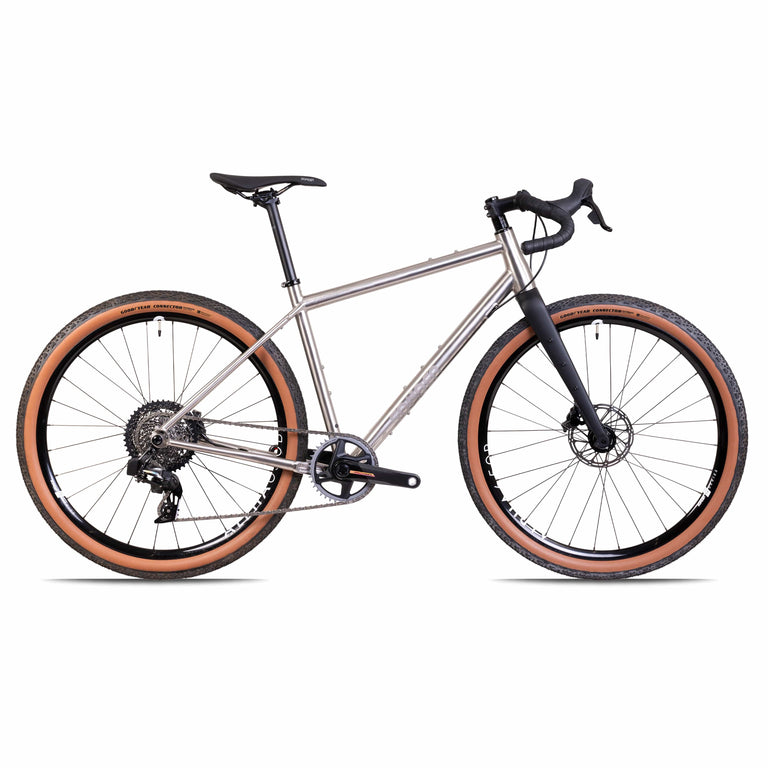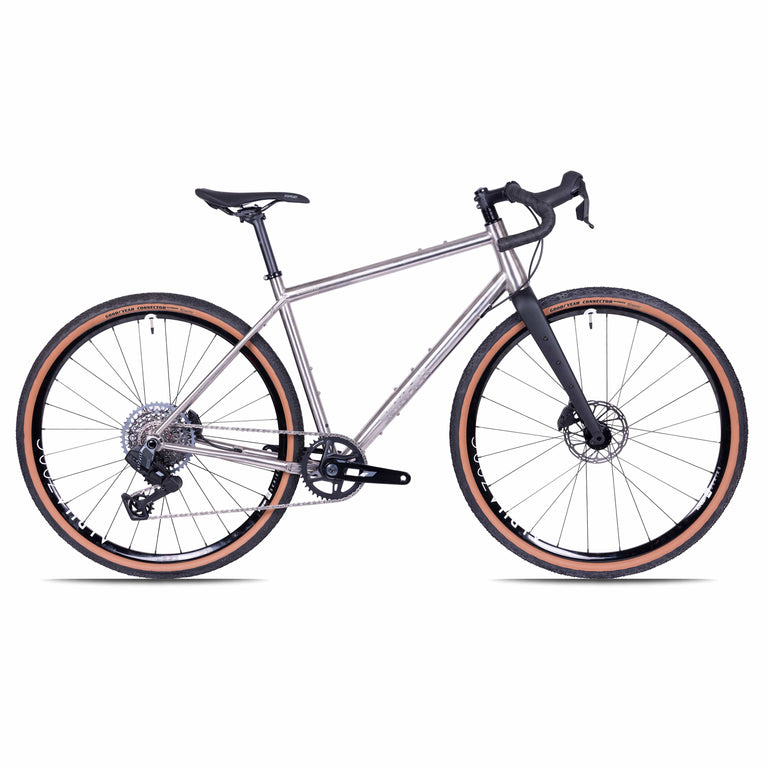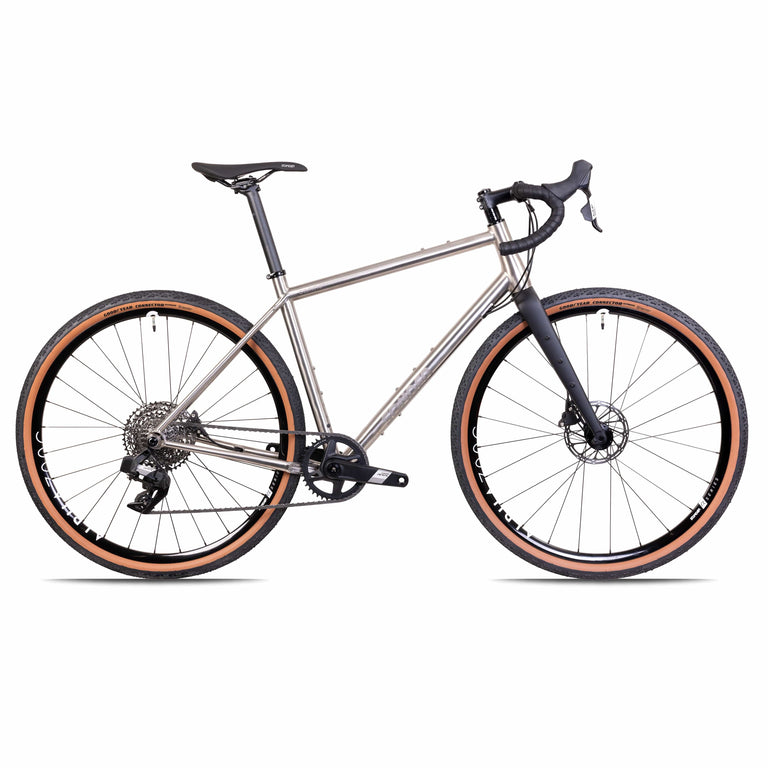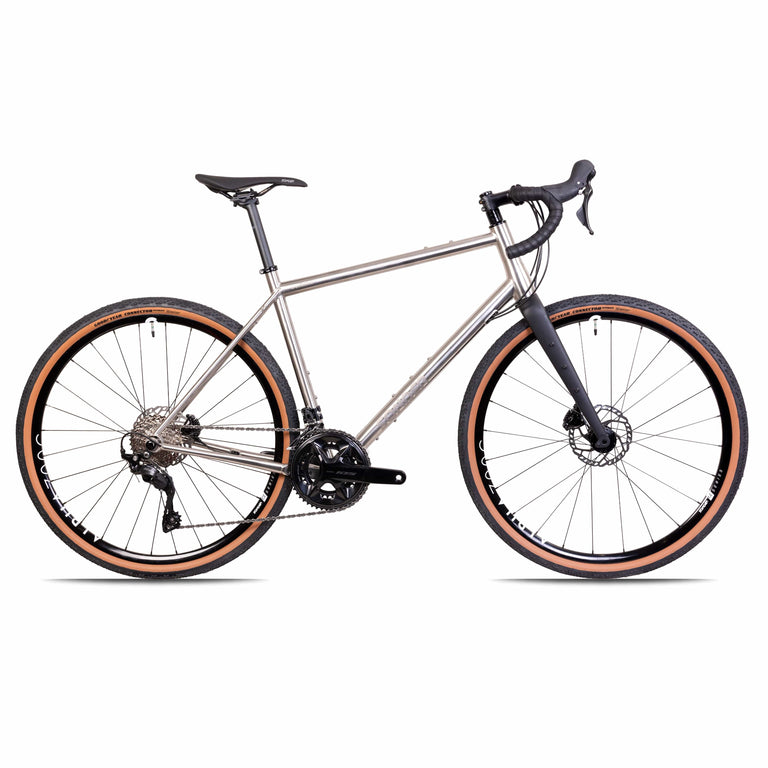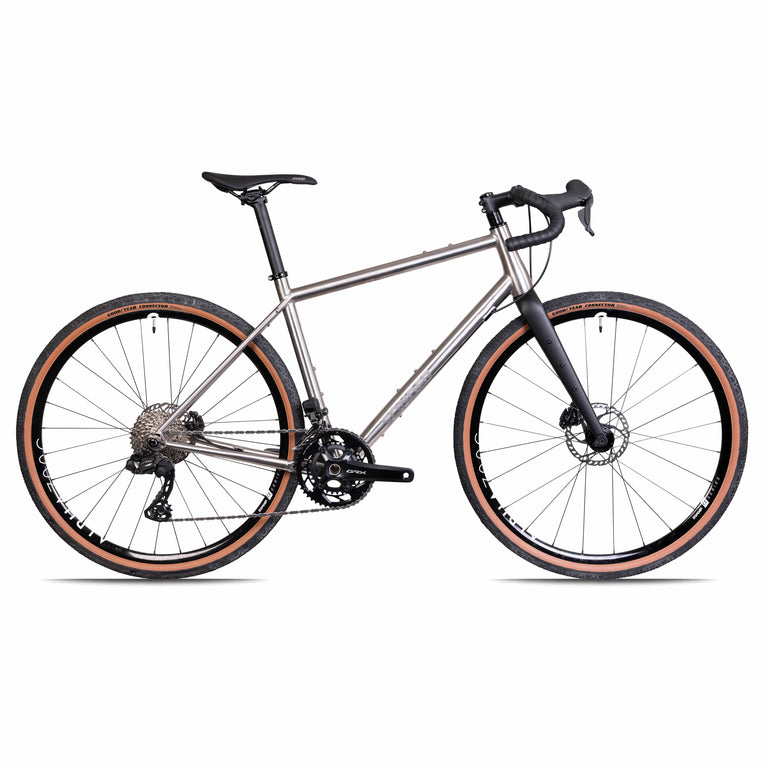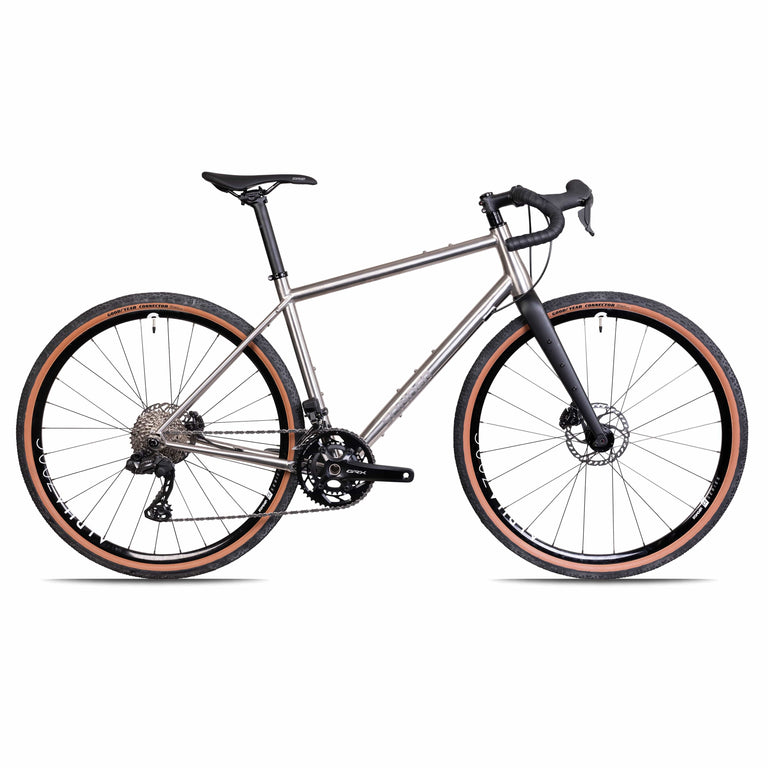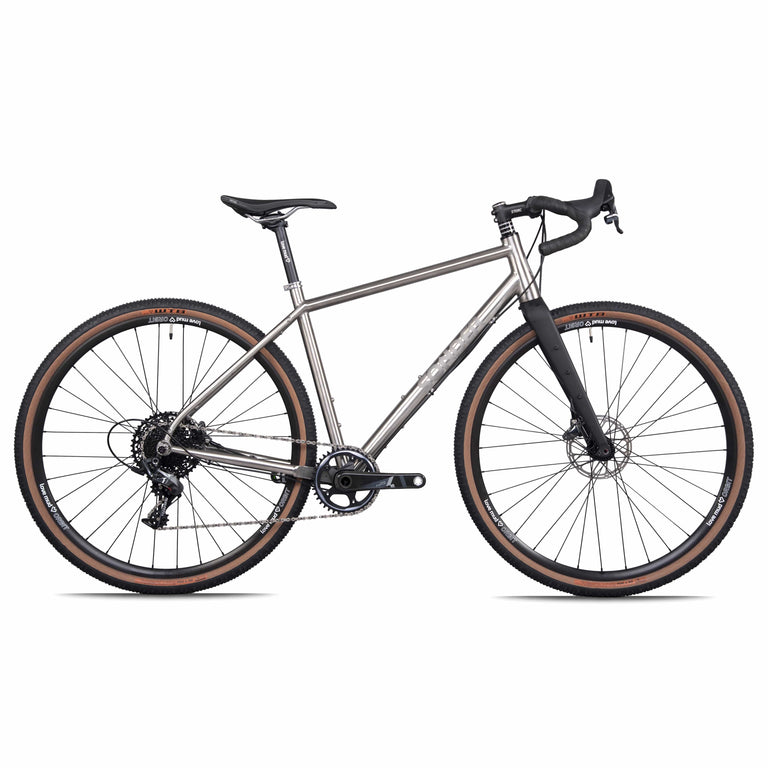
High-power bike lights have revolutionized night cycling, offering brighter trails and extended adventures after dark.
High-power LED bike lights have profoundly changed our night riding experience. Advancements in LED and battery technology have made riding at night funner and safer than ever, giving you more confidence to explore your roads and trails after dark.
And thank goodness for that. There was a time when a bike light was the same size and weight as a tin of baked beans, and would pump out little more light than a large candle; just enough to be seen but hardly enough to see.
The winter months are no longer the barrier they once were to commuting, after-work socials or long-distance touring. The future is very bright indeed.
Prepare yourself for cycling at night
We get used to the long summer days. Life is good. But before we know it, September is ending, and suddenly, the dark caught you out again!
Even then, it takes a while for us to get back into good habits, like finding your charger, making sure you charge the night before, carrying a spare battery, finding your light mounts or sorting another for your 2nd or even 3rd bike.
Your senses play different roles at night. My vision was limited to the pool of light in front of me. The roadside flowers all closed like little fists. The white blossom of hawthorn hedges contrasting with the faint orange glow of the distant London sky. All the colours muted.
What to look for in your next bike light
Whether you're using your bike lights for commuting, off-road biking, racing or long-distance touring, here are some questions to ask yourself when choosing your ideal bike lights:
What do you need your bike light for?
-
Visibility: If you ride mainly in urban areas, street lighting will be adequate to help you see where you are going. The primary purpose of your bike light is to be seen by others. It is also required to ride on the UK's roads at night. The Highway Code states that
At night your cycle MUST have white front and red rear lights lit. It MUST also be fitted with a red rear reflector (and amber pedal reflectors, if manufactured after 1/10/85). White front reflectors and spoke reflectors will also help you to be seen. Flashing lights are permitted but it is recommended that cyclists who are riding in areas without street lighting use a steady front lamp.
- Illumination: If you are riding in unlit areas, your bike light should provide adequate illumination for your riding and the type of trail or road you are riding on. If you are reading this, you will fall into this category and ask just how bright is bright enough?
How bright do your bike lights need to be?
- Front Lights: 100-300 lumens should be sufficient for riding around town. For pitch-black trails, you may need upwards of 600-1000+ lumens. The faster you ride, the brighter the light you will need. A rule of thumb says you should have a brighter light than whoever rides behind you. Riding in your own shadow is no fun at all! As crucial as lumens are (a measure of brightness), they are not the whole story. You should also consider the beam pattern, especially if riding off-road.
- Rear Lights: A bike light with 20-100 lumens will make you visible to other road users. Mount them on the off-side, but remember to switch it over when you travel to Europe. Rear lights commonly have an internal battery, but you can also find rear lights powered by a line running off the main lithium battery pack.
Match the beam pattern to your style of cycling
- Focused Beam: An intense beam is often preferred when riding on unlit roads or trails. It will give you the best view of the road ahead of time to avoid any obstructions or sharp changes in direction. Fortunately, many natural hazards have built-in reflectors and conveniently turn naturally to face you.
- Wide Beam: A wide flood of bright, even light enhances visibility from all directions. It is ideal for traversing technical ground such as boulder gardens or tree-rooted trails where your handlebars will twist to navigate the obstacles.
The gate closed behind us with a clunk. It was pitch black, and light from our torches disappeared into the infinite darkness. Our thin paper map provided few clues about leaving this field, so we pedalled randomly. Suddenly, hundreds of eyes appeared in the dark. Then, stampede! The eyes disappeared as quickly as they had appeared. Freaked, we found that gate quick-smart and left those cows to their nocturnal wanderings.
Make sure your battery has enough juice
- Duration: Choose a bike light with a battery capacity to last the duration of your ride. If you are riding through the night in winter you will need upwards of 12 hours burn time. If you are riding offroad, navigating difficult terrain 800+ lumens will help you to ride with confidence. Carrying a spare battery or choosing a dynamo-powered bike light for longer rides, more remote rides is a great solution.
- Type: Lights can use replaceable batteries (like AA or AAA) or rechargeable batteries (like USB-rechargeable). Rechargeable lights are more common and can be more cost-effective in the long run.
- Indicator: A battery life indicator can be helpful to avoid getting caught in the dark. You will have to pedal faster if you are already past the point of no return.
Where do you want to mount your bike lights?
- Handlebar: The most common location to mount your bike light is to fix it to your handlebars. Light mounts usually come with spacers to fit different bar diameters.
- Handlebar extension: If you are bikepacking, your bike luggage may already occupy your handlebars. An extension raises the bike light to point over whatever you have strapped to your bars.
- Forks: Some riders prefer to keep their lights out of the way by mounting them down on their front forks. Be aware that the profile of your fork might not be compatible with every mount, and you will have reduced visibility.
- Seat Post: A perfectly sensible location for your rear light. Unfortunately, it is also directly in the firing line from any crud fired from your tyres. If you use a seat-pack, consider moving it to your seat stay.
- Seat Stay: For maximum visibility, put it on the side where traffic will overtake you.
- On-luggage: Some clever manufacturers provide tabs, clips and toggles on their bike luggage or panniers so you can attach lights. These solutions are typically most successful when the luggage is fully packed and rigid.
- Helmet: Mounting a bike light on your helmet provides additional illumination and is especially useful for off-road cycling at night. Benefits include greater reach due to the extra height, it moves with your head (your riding buddies may not appreciate this as a benefit), and if you are bikepacking, you have a light around camp. It allows you to direct the light exactly where you need it, giving you greater flexibility and control while riding. Some bike lights come with mounts that can be attached to your bars or helmet; however, to be road-legal, you should use your helmet-mounted light in addition to your bike-mounted lights.
Additional features add complexity but also extra security
- We recommend you keep your options simple and ride, but modes such as pulse and boost have their place. A strobing pulse is effective at alerting other road users to your presence, but it may just give you a headache away from urban areas.
- Some bike lights offer adjustable brightness levels and focus. This adjustability is helpful if your ride covers a variety of terrains and you want to optimise the performance and battery life of your bike light throughout your ride.
Waterproof bike lights
- Look for the IP rating, which indicates how waterproof the bike light is. A rating of IP64 and above is suitable for cycling in the rain. All of our bike lights meet or exceed this rating.
Weight and size
- Compact lights are less likely to get knocked or caught. Our Phase 550 weighs just 123g and is the size of a large thumb. On longer rides, a larger battery capacity will be heavier, adding weight to your set-up. Most compact bike lights have an internal battery, and others have an external battery with cables to manage - but at least you can hot-swap the battery if caught out.
Side Visibility, be seen from all angles
- Some bike lights have side cut-outs or additional LEDs for increased visibility from the side, which is especially important in urban areas.
Do you need the bells and whistles?
- Daytime Running Light (DRL): Some lights are bright enough and have specific modes designed for daytime visibility. Some dynamo lights, such as the Exposure Revo, are always on.
- Remote Switch: You can change modes without taking your hands off the handlebars. It is a nice feature if you are mountain biking over tricky terrain. Please don't mix it up with your dropper seatpost, or you may be in for a shock.
- Adaptive Lighting: Little sensors within the light adjust the brightness based on ambient light or speed.
Choose the correct set of features, and you can ride into the night with the confidence that you will not bump into any free-roaming cows.
Bike Lights to see and be seen
The Alpkit range of bike lights for road, gravel or mountain is rugged, durable and highly powered. Bright USB rechargeable bike lights with long burn time to help you see and be seen.
Sonder Bikes
Camino Al Apex1 AXS XPLR
- Sram Apex AXS XPLR 12-speed groupset
- Sonder Nova I25 Gravel UK Made wheelset
Camino Al Rival AXS XPLR
- SRAM Rival AXS XPLR 13-speed groupset
- Sonder Alpha I25 Gravel UK Made wheelset
Camino TI Force AXS XPLR
- SRAM Force XPLR 13-speed groupset
- Sonder Alpha I25 Gravel UK Made wheelset
Camino TI Rival AXS XPLR
- SRAM Rival AXS XPLR 13-speed groupset
- Sonder Alpha I25 Gravel UK Made wheelset
Camino Al Apex1 Flat Bar
- SRAM Apex 12-speed groupset
- Sonder Nova I25 Gravel UK Made wheelset
Camino Al 105
- Shimano 105 R7120 12-speed groupset
- Sonder Nova I25 Gravel UK Made wheelset
Camino Al GRX1
- Shimano GRX 610 12-speed groupset
- Sonder Nova I25 Gravel UK Made wheelset
Camino Al GRX2
- Shimano GRX 610 12-speed groupset
- Sonder Nova I25 Gravel UK Made wheelset
Camino Al 105 Di2
- Shimano 105 R7170 Di2 12-speed groupset
- Sonder Alpha I25 Gravel UK Made wheelset
Camino Al Frame And Fork
- 6061 aluminium frame
- Gravel geometry
- Carbon monocoque fork
- Huge tyre clearance
Camino TI 105
- Shimano 105 R7120 12-speed groupset
- Sonder Alpha I25 Gravel UK Made wheelset
Camino TI GRX2
- Shimano GRX 610 12-speed groupset
- Sonder Alpha I25 Gravel UK Made wheelset





